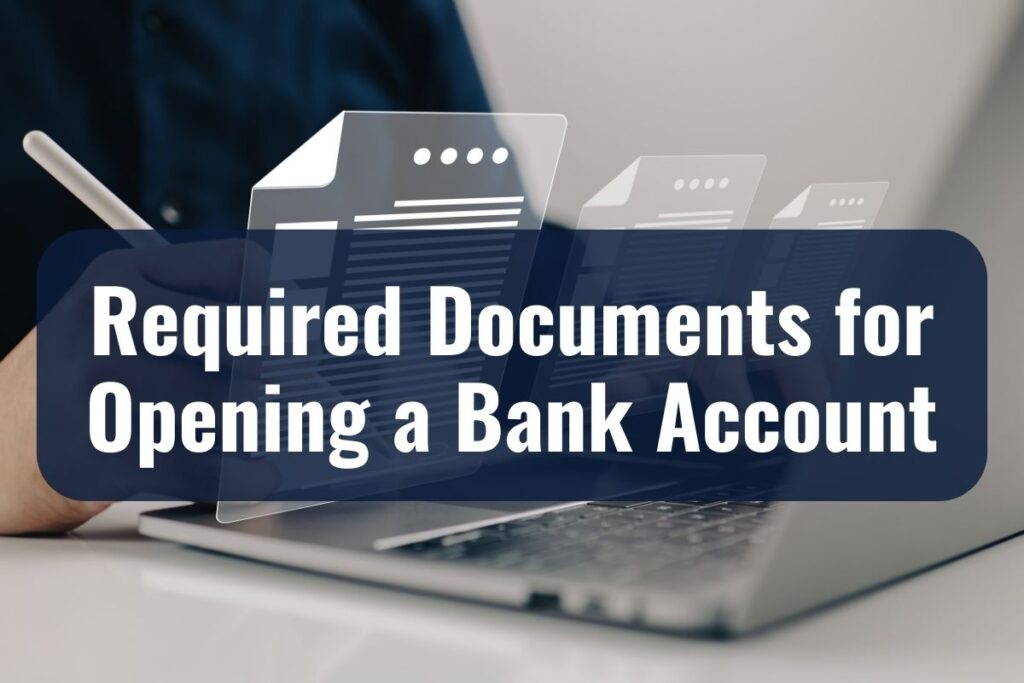Opening a bank account in France facilitates access to financial products like loans, credit cards, and savings accounts. Whether you’re moving to France for a new job, education, or just to enjoy life in one of the world’s most beautiful countries, understanding how to open a bank account is essential.
We aim to provide a clear and concise overview of the process, tailored for those who may not be fluent in French but must navigate the French banking system effectively.
KEY TAKEAWAYS
- Opening a bank account in France is essential for managing finances and daily transactions efficiently.
- Different types of bank accounts serve various financial needs, from daily expenses to savings.
- Fulfilling the eligibility criteria and preparing the necessary documents streamline the account opening process.
- Choosing the right bank involves comparing fees, services, and language support.
- Online banking offers convenience, lower fees, and often services in English, making it a good choice for expatriates.
Understanding the Types of Bank Accounts
In France, banks offer a variety of accounts to suit different financial needs. Choosing the right type is the first step toward effective money management in a new country.
| Account Type | Purpose | Ideal For |
| Checking Account | Daily transactions, bill payments, and salary | Residents and employed individuals |
| Savings Account | Earning interest on savings | Long-term savers |
| Non-Resident Account | Banking without permanent residence | Expatriates and international residents |
Checking Accounts (Compte Courant)
Checking accounts, known as “compte courant” in French, are standard for daily financial transactions. They allow for direct deposits, bill payments, and the use of debit cards.
These accounts are essential for receiving salaries, paying rent, and handling day-to-day expenses. Most banks issue a debit card (carte bancaire) with the opening of a checking account, enabling easy access to funds both in France and abroad.
Savings Accounts (Compte d’Épargne)
Savings accounts, or “compte d’épargne,” are designed for those looking to earn interest on their stored funds. These accounts are ideal for setting aside money for future plans or emergencies. The interest rates, conditions for deposit and withdrawal, and tax implications can vary widely between banks, so it pays to compare options.
Non-Resident Accounts
For individuals not permanently residing in France, non-resident bank accounts offer a solution. These accounts can be more flexible regarding residency requirements but might come with higher fees or different services. They are particularly useful for expatriates who split their time between countries or for those maintaining financial ties to France while living abroad.
Eligibility Criteria

To open a bank account in France, certain criteria must be met to ensure a smooth and compliant banking experience. Understanding these requirements beforehand can prepare you for a successful application.
Age Requirement
The primary condition for opening a bank account in France is age. Individuals must be 18 years of age or older. Some banks may offer accounts for minors, but these require parental consent and have restricted functionalities.
Residency Status
Banks differentiate between residents and non-residents when opening accounts. Residents need to provide proof of address within France, while non-residents are eligible for specific account types designed to meet their needs.
Documentation for Identity and Residency
Accurate documentation is crucial. Banks require official identification and proof of residence to process your application. Legal residency documents are also necessary for non-EU citizens.
Required Documents for Opening a Bank Account

When opening a bank account in France, preparing a set of specific documents is essential. This preparation ensures the process is efficient and compliant with French banking regulations.
Valid Identification
Banks require a valid form of identification to open an account. This can be a passport or a national identity card for EU citizens. The identification must be current and include a photograph.
Proof of Residence
Proof of residence is mandatory for opening a bank account in France. Acceptable documents include a recent utility bill (electricity, water, or gas), a rent agreement, or a residence certificate from the local municipality. These documents must be recent, typically within the last three months, to be considered valid.
Legal Residency Documents for Non-EU Citizens
Non-EU citizens must provide additional documentation proving their legal right to reside in France. This includes a valid visa or a residency permit (titre de séjour). These documents are crucial for non-EU citizens to fulfill banking requirements in France.
Choosing a Bank

Selecting the right bank is a crucial decision that affects how you manage your finances while in France. With numerous options available, consider factors such as the availability of English-speaking services, fees, and the convenience of online banking.
Traditional Banks vs. Online Banks
Traditional banks offer a wide range of services including in-person consultations, which can be beneficial for complex transactions or when seeking financial advice. They often have extensive branch and ATM networks across France. However, they might have higher fees and require more paperwork.
Online banks are known for their lower fees and convenience. They offer the majority of banking services online or through mobile apps, including account opening. This can be particularly advantageous for English speakers, as many online banks provide services in multiple languages.
Services Offered in English
Finding a bank that offers services in English is vital for those who are not fluent in French. Some banks have dedicated English-speaking staff or hotlines, while online banks often provide user interfaces and customer support in English.
Account Management Fees and Transaction Costs
Banks in France charge for various services, such as account management, card usage, and transactions. Comparing these fees is essential to finding the most cost-effective banking solution. Pay special attention to international transaction fees if you plan to travel or send money abroad regularly.
Step-by-Step Guide to Opening an Account

Opening a bank account in France involves a series of steps designed to ensure a smooth process. By following this guide, you can navigate the procedure efficiently.
Contacting the Bank
In-Person Appointment: Many traditional banks require you to schedule an appointment to open an account. This provides an opportunity to ask questions and understand the services offered.
Online Application: For online banks and some traditional banks, you can start the process online. This usually involves filling out an application form and uploading the necessary documents.
Submitting the Required Documents
Prepare and submit all required documents as outlined by the bank. This typically includes valid identification, proof of residence, and, for non-EU citizens, proof of legal residency in France. Ensuring the accuracy and completeness of these documents can expedite the approval process.
Understanding the Terms and Conditions
Carefully review the bank’s terms and conditions. Pay close attention to account management fees, withdrawal limits, and overdraft policies. This information helps avoid unexpected charges and ensures you choose the account that best fits your needs.
Activation of the Account and Receiving Banking Tools
Once your application is approved, the bank will proceed to activate your account. You will receive your banking tools, such as a debit card and checkbook. Online banking access is typically provided immediately, enabling you to manage your account digitally.
Activation times can vary, so ask the bank for an estimated timeline. Additionally, familiarize yourself with the activation process for your debit card and any initial setup required for online banking.
Online Banking Options

The rise of online banking in France offers a convenient, efficient way to manage finances, particularly for English speakers and those accustomed to digital services. Here’s what you need to know about embracing online banking in France.
Benefits of Online Banks for English Speakers
Accessibility: Many online banks provide interfaces and customer support in English, making them an attractive option for those not fluent in French.
Lower Fees: Online banks typically have lower account management fees and transaction costs, as they save on the overheads associated with physical branches.
Convenience: With features like mobile apps, online payments, and instant notifications, online banks offer a level of convenience that traditional banks can struggle to match.
Overview of Popular Online Banks in France
Several online banks have established a strong presence in France, offering a range of services that cater to both residents and expatriates. These banks often provide competitive interest rates on savings accounts, free international transactions, and innovative banking solutions.
Process of Opening an Account with an Online Bank
Application: The process usually starts on the bank’s website or mobile app, where you’ll fill out an application form.
Documentation: You will need to upload digital copies of your identification, proof of residence, and possibly other documents, depending on the bank’s requirements.
Verification: Some online banks may require a video call for identity verification, while others use secure online methods.
Account Activation: Once your application is approved and your identity is verified, your account will be activated. You’ll receive your debit card by mail and can start using online banking services immediately.
Tips for Foreigners

For foreigners establishing their financial foundation in France, navigating the banking system can be straightforward with the right approach. Here are practical tips to enhance your banking experience.
Review Account Fees and Services
Take the time to compare account management fees, transaction costs, and service charges among various banks. This comparison can lead to significant savings, especially if you frequently travel or send money internationally.
Setting Up Online Banking and Mobile Apps
Once your account is active, promptly set up online banking and download the bank’s mobile app. These tools are invaluable for monitoring transactions, paying bills, and transferring money efficiently. Ensure your access is secure by setting strong passwords and activating any additional security features offered by the bank.
Advice on International Money Transfers and Currency Exchange
If you anticipate making international transfers or dealing with currency exchange, investigate these services beforehand. Some banks offer competitive rates and lower fees for international transactions.
Alternatively, consider specialized services outside the banking system for potentially better rates and lower fees. Be aware of the exchange rates and transaction fees involved in these services to avoid unexpected costs.
Recommendations for Daily Financial Management
Familiarize yourself with the local payment culture in France, including the widespread use of debit cards and mobile payments. Keeping a small amount of cash for places that do not accept cards is also advisable. Consider setting up direct debits for regular payments such as rent, utilities, and phone bills to ensure timely payments and avoid late fees.
By following these tips, foreigners can navigate the French banking system with confidence. Proper preparation and understanding of your banking options will ensure your financial management in France is as smooth and efficient as possible.


